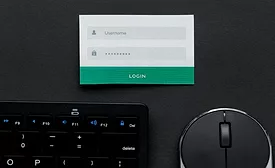Home » passwords
Articles Tagged with ''passwords''
New survey finds that password hygiene amongst cybersecurity leaders is lacking
Constella Intelligence research reveals that one in four cybersecurity leaders use the same passwords for both work and personal use; more than half experience account takeover first-hand
May 21, 2021
Passwords are bad for business, frustrating for consumers
According to Transmit Security’s State of Customer Authentication report, 55% of consumers have stopped using a website because of the login process and more than 87% have been locked out of an online account because of an error-ridden password process.
March 30, 2021
Sign-up to receive top management & result-driven techniques in the industry.
Join over 20,000+ industry leaders who receive our premium content.
SIGN UP TODAY!Copyright ©2026. All Rights Reserved BNP Media.
Design, CMS, Hosting & Web Development :: ePublishing









